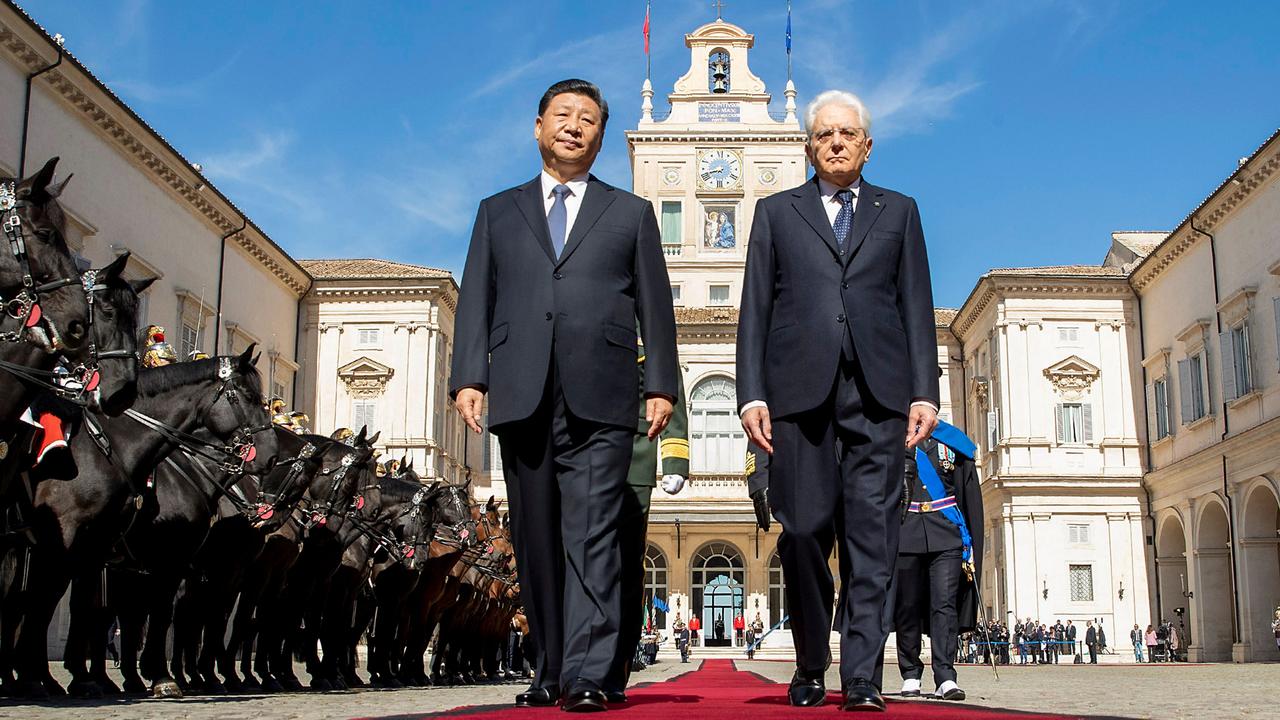
The steady shift of the US and Australia towards an accommodation with Syrian President Bashar al-Assad to defeat Islamic State has widened an already growing Middle East policy gap with Israel.
Israeli Prime Minister Benjamin Netanyahu’s speech to the US congress against the Iran nuclear deal appears to have facilitated US President Barack Obama’s pursuit of a very different tack over Syria.
Recent visitors from Israel to Australia have underlined that country’s continuing focus on Iran as its principal concern, and its desire to see the ousting of Assad — Iran’s most important ally in the region.
Among those visitors last month was Jonathan Spyer, who has been a special adviser on international affairs to Israeli cabinet ministers and is now senior research fellow at the Centre for Global Research in International Affairs at the Inter-Disciplinary Centre in Herzliya, Israel.
Shia Iran, he says, has built “an effective coalition of interests around the Middle East — while no Sunni power is capable of mobilising proxies” in the region. He said Islamic State — also known as ISIS — occupied an area about the same as the British Isles, with a population of about 10 million, had collapsed the border between Iraq and Syria, and had ambiguous relations with Turkey, but was not overtly supported by any established state.
“From the look of it, although coming under attack from the Western countries’ air campaign, ISIS is not going anywhere any time soon.”
The West’s failure to back its allies convincingly to check its enemies is affecting the whole region, he said — resulting in some confusion over who were allies, who enemies.
In Iraq, he said, Western air power had been used to save Iran-backed Shia militias.
Following the peace treaties with Egypt and Jordan, Spyer said, the biggest threats immediately facing Israel had come — in force of arms — from Iraq and Syria. “But now,” he said, “neither the arms not even the states behind them exist any more in a meaningful way, the Assad regime only controlling 20 per cent of Syria.
“The conventional threats have lessened dramatically. But the ferment has produced new enemies and hostile elements, both paramilitary forces and the Iranians, with their own ambitions towards our demise.
“The Iran-led alliance remains by far the most potent enemies, and our main attention is with them and not against the jihadis, who will have to wait for us to deal with them after that,” he said.
Israel is determined, he said, not to allow the creation of a new front led by jihadis at the Golan Heights.
Islamic State, he stressed, was something new: a jihadi group that wanted to create not insurgency, but a state. “It is murderous and barbaric, but has an element of seriousness, a clear strategy.
“The context is the disastrous Arab encounter with the modern world, with a response of intoxication with this or that would-be saviour, either secular or religious, often short-lived. ISIS is the current iteration.
“As life there is seen to be closer to hell than to paradise, it will begin to lose its shine. But to destroy it swiftly would take a large ground force, Western or Arab. That won’t happen any time soon. And the Shia militias are defensive rather than aggressive.”
There was no question of an Israeli land forces deployment gaining political legitimacy at home, he added.
Spyer said Obama’s “rapid abandonment” of Hosni Mubarak in Egypt — “without thinking of the consequences of how Washington would be perceived in the region, and his failure to act after Assad used chemical weapons despite saying this was a red line” — had shifted thinking in the region.
He said this did, however, represent a recognisable, realist element in US foreign policy — disengaging because there were greater challenges elsewhere, and because Gulf oil and gas were no longer needed. This meant, though, that the West’s allies in the region would have to work more closely together.
For Iran, he said, Syria provided a crucial corridor with which to land and ship materials for Hezbollah.
The room for Israel to move, had contracted with the continued rule in Turkey of President Recep Tayyip Erdogan, who Spyer described as “a visceral anti-Semite”, whose contemporary role model was Russian President Vladimir Putin and whose priority was to assemble a neo-Ottoman sphere of influence, on the basis of shared Sunni identity with the Arabs.




To join the conversation, please log in. Don't have an account? Register
Join the conversation, you are commenting as Logout